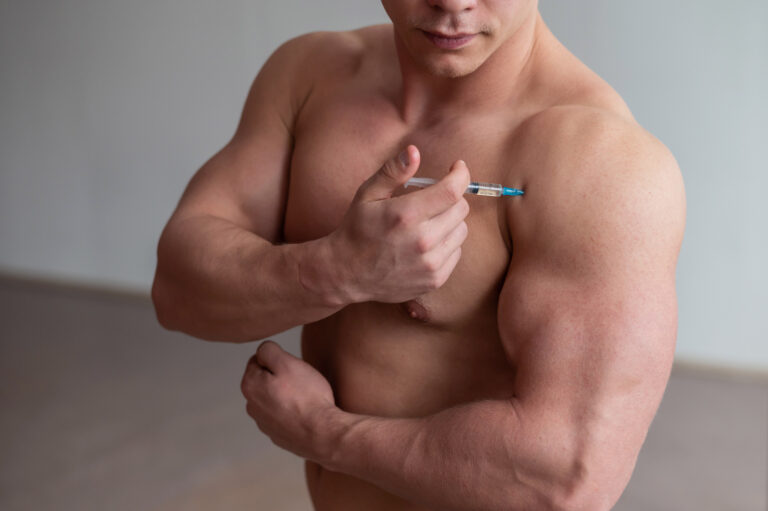Insulin resistance is a condition in which the body’s cells, such as muscle cells, fat cells, and liver cells, become less responsive to insulin. This forces the body to produce more insulin to maintain stable blood sugar levels. When this condition persists for a long time, the pancreas will start to work harder until it deteriorates and produces less insulin. As a result, blood sugar levels continuously rise, leading to type 2 diabetes and other chronic diseases in the future.
Causes of Insulin Resistance
Insulin resistance is a condition in which cells in the body, such as muscle cells, fat cells, and liver cells, respond less to insulin. As a result, the body has to produce more insulin to control blood sugar levels. When this condition continues for a long time, the pancreas begins to work harder until it deteriorates and produces less insulin. Blood sugar levels rise steadily, leading to the development of type 2 diabetes and other chronic diseases in the future.
Causes of insulin resistance
Insulin resistance can arise from various factors, both internal factors that are difficult to control and external factors where lifestyle adjustments can help reduce the risk. Key causes of insulin resistance include:
- Genetics: A family history of type 2 diabetes or insulin resistance may increase an individual’s susceptibility to the condition.
- Increased Age: As we age, the body’s responsiveness to insulin tends to decrease.
- Diet High in Refined Carbohydrates and Sugar: Consuming foods like white bread, refined rice, sugary drinks, and sweets can overstimulate insulin production.
- Overweight and Excess Body Fat: Particularly a large amount of visceral fat (belly fat) is strongly linked to insulin resistance.
- Lack of Physical Activity: Insufficient exercise reduces the efficiency of cells in using blood sugar for energy, making blood sugar control more difficult.
- Stress and Insufficient Sleep: These factors can disrupt hormone balance, leading to reduced insulin sensitivity.
- Certain Medications: Some drugs can interfere with insulin function, such as corticosteroids, birth control pills, diuretics, and antipsychotics.
- Smoking and Alcohol Consumption: These habits can impair insulin function and increase inflammation within the body.
Symptoms of Insulin Resistance
While insulin resistance may not present obvious symptoms in its early stages, certain signs can indicate that the body is experiencing this condition. These include:
- Frequent Hunger and Sugar Cravings: Feeling hungry and wanting sweets even after eating recently.
- Easy Fatigue and Regular Tiredness: Due to cells not being able to efficiently use glucose for energy.
- Easy Weight Gain, Increased Waist Circumference, and Difficulty Losing Weight.
- Darkening of the Skin (Acanthosis Nigricans): Dark patches may appear on the neck, armpits, and skin folds. Some individuals may also develop skin tags on the neck.
- High Blood Sugar or Abnormal Blood Lipid Levels: Fasting blood glucose levels above 100 mg/dL or triglyceride levels above 150 mg/dL, which can be detected through blood tests.
- Irregular Menstrual Cycles in Women: Due to hormonal imbalances and association with Polycystic Ovary Syndrome (PCOS), leading to irregular periods or even difficulty conceiving.
If you notice these unusual symptoms, it is advisable to consult a healthcare professional for a health check-up to assess your risk of insulin resistance and develop an appropriate health management plan.
Effects of Insulin Resistance on the Body
If the body experiences insulin resistance for a prolonged period, it can lead to various health problems, including:
- Type 2 Diabetes: As the pancreas deteriorates and cannot produce enough insulin to meet the body’s needs, blood sugar levels rise, leading to type 2 diabetes.
- Cardiovascular Diseases: Insulin resistance can trigger inflammation in the blood vessels, increasing the risk of heart disease, high blood pressure, and atherosclerosis (hardening of the arteries).
- Non-Alcoholic Fatty Liver Disease (NAFLD): The body accumulates more fat in the liver, causing liver dysfunction and increasing the risk of liver inflammation and cirrhosis.
- Metabolic Syndrome: This condition involves abnormal energy metabolism and is a precursor to various chronic diseases, including abnormal blood lipid levels, high blood pressure, excess weight, and high blood sugar.
- Eye Diseases: Such as diabetic retinopathy, cataracts, and glaucoma, which can impair vision and potentially lead to blindness if not treated appropriately.
Ways to Prevent and Reduce the Risk of Insulin Resistance
You can prevent and reduce the risk of insulin resistance by making appropriate healthy lifestyle changes to help your body respond better to insulin. These include:
- Choose High-Fiber Foods: Such as vegetables, fruits, and whole grains, to help slow down the absorption of blood sugar and reduce the workload on insulin.
- Avoid High-Sugar Foods and Processed Foods
- Exercise Regularly: Especially weight training and cardio exercises, to strengthen the body and boost metabolism.
- Maintain a Healthy Weight (BMI between 18.5 and 24.9)
- Get Enough Sleep and Reduce Stress: To help the body regulate blood sugar levels effectively.
Is Insulin Resistance Curable?
Insulin resistance can be improved or even reversed to a normal state with serious and continuous health management, especially through appropriate lifestyle modifications such as controlling blood sugar levels, eating a healthy diet, quitting smoking and alcohol, exercising regularly, and maintaining a healthy weight.
Treatment Approaches for Insulin Resistance
Currently, there are several effective ways to alleviate and improve insulin resistance, depending on the severity of symptoms in each individual. These include appropriate lifestyle adjustments and medical treatments for insulin resistance, as follows:
- Medication: Such as Metformin, to help inhibit the release of glucose from the liver into the bloodstream and increase insulin sensitivity. Doctors may also consider using Pioglitazone, Liraglutide, Semaglutide, and Empagliflozin in patients with type 2 diabetes.
- Insulin Injections: For patients with severe insulin resistance or type 2 diabetes whose blood sugar cannot be controlled with oral medications.
- Intermittent Fasting (IF) under Medical Supervision: Periodic fasting may help lower insulin levels and improve the body’s response to insulin. However, individuals with insulin resistance should do IF under medical supervision to reduce potential side effects.
- Weight Loss and Bariatric Surgery: In individuals with obesity and insulin resistance, to help the body respond better to insulin.
- Hormone Therapy: For women with PCOS and insulin resistance.
In addition to medical treatments, LINNA CLINIC also offers alternative therapies for health rejuvenation, suitable for individuals with insulin resistance and abnormal blood sugar levels. Every step is closely supervised by experienced physicians, focusing on restoring the body’s balance from within and supporting normal bodily functions without relying on medication. Those who are interested can consult with our experienced doctor at LINNA CLINIC to develop a sustainable health care plan.
Conclusion:
Insulin resistance is a health problem that causes the body to respond less effectively to insulin and is a significant factor leading to type 2 diabetes and other serious diseases. Although early symptoms may not be obvious, certain abnormalities can be observed, such as easy weight gain, difficulty losing weight, frequent hunger, dark skin patches on the neck, armpits, and groin, or abnormal blood sugar and lipid levels. Insulin resistance can be managed by adjusting health behaviors, using medical treatments, and supplementing with innovative alternative therapies for rejuvenation without relying on medication. If you are interested in improving your body from insulin resistance or have abnormal blood sugar levels, you can receive a consultation and detailed health assessment by our expert physicians at LINNA CLINIC. We are ready to provide care and plan personalized health recovery approaches for effective and safe results. Contact us or make an appointment via LINE: @linnaclinic or call 063-609-8888.




